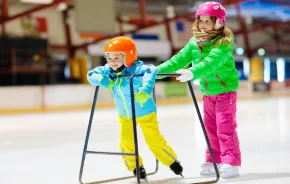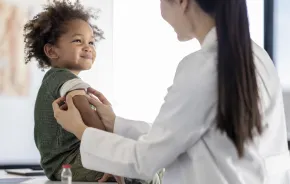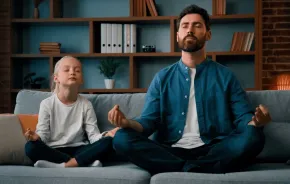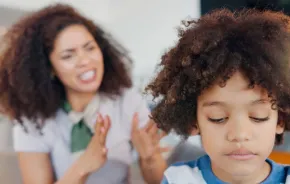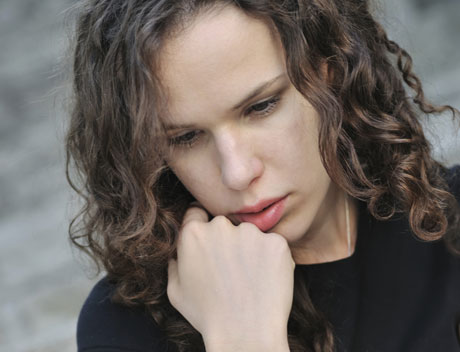 Ondria Leary’s son had long been energetic and popular. “Friends were always calling him. He was a drum major in the marching band, he was in drama,” she says. But, she recalls, midway through high school, “The calls started getting more frequent and they were shorter.”
Ondria Leary’s son had long been energetic and popular. “Friends were always calling him. He was a drum major in the marching band, he was in drama,” she says. But, she recalls, midway through high school, “The calls started getting more frequent and they were shorter.”
Why worry? The Learys lived in an area with excellent schools and intact families. “You get fooled by the environment you live in,” says her husband, George Leary Jr., who, along with Ondria, started finding some strange things in their son’s room, including a kitchen teaspoon.
In hindsight, over the course of two years, there were red flags that their sociable son had developed an addiction. “It was bad,” says George. “He started with alcohol and marijuana, but when he got honest with us, he told us he was using cocaine, psychedelics, heroin; that he was a junkie.” Today, this father works to enlighten others about the signs of substance abuse, so they can avoid excruciating years of trying to wrest a child from the grips of drugs.
We parents know that illegal substances are out there. What many of us don’t realize is just how prevalent — and popular — drugs such as methamphetamine, heroin, marijuana and prescription drugs actually are.
A study released in August by the National Center on Addiction and Substance Abuse at Columbia University reports that 60 percent of high school students say that they attend a “drug-infected school,” where drugs are used, kept or sold on school grounds. And for the first time in the survey’s history, more than half of private high school students claim their school is infected with drugs, meaning that the gap between public and private is closing.
A 2010 study by the National Institute on Drug Abuse found that 71 percent of high school seniors were illegally drinking alcohol and nearly half of all seniors were using illicit substances. In July of this year, the NIDA reported that illicit drug use among teenagers has been rising, largely because of the increasing popularity of marijuana.
If they’re using drugs
What about your children? Are they using drugs? And what should you do if they are?
Experts recommend a three-tiered process for parents who want to find out if their kids are using drugs and, if so, want to get help. Let’s call this method TLC: talking, looking and counseling.
Talking: Kira Mauseth, a clinical psychiatrist and lecturer at Seattle University, believes parents who talk frequently with their kids about all kinds of issues have the best chance of spotting a drug problem.
Talk to your kids about who their friends are and how they are spending their time. If their group of friends has changed, be on alert, particularly if the new friends are older. “One reason kids use drugs is the social connection,” says Steve Olson, a counselor at the Renton Area Youth & Family Services. “It’s a ticket to membership.”
In his recently published book, "What’s Wrong with My Kid?: When Drugs or Alcohol Might Be a Problem and What To Do about It," Leary asks parents, “When you ask your child where he’s hanging out and who he’s with, is he vague? Are phone conversations unusually brief, and does he talk in a hushed voice?”
Martha Linehan, a Seattle chemical dependency counselor, says parents shouldn’t fear talking with their kids about drug and alcohol use. “Parents should not be afraid of what they may find out,” she says. “I’m a firm believer that whatever comes their way, we can deal with it.”
And make sure you include marijuana use in your discussion.
Joseph A. Califano Jr., the former U.S. secretary of health, education and welfare, writes in his book "How to Raise a Drug-Free Kid: The Straight Dope for Parents," “The pot that your child would be offered today is likely to be as much as ten times more powerful than the marijuana available a generation ago.”
Looking: Watch for changes in appearance, says Leary. Sudden weight loss and pallid skin color can be red flags. And keep a lookout for drug paraphernalia: syringes, lighters, pipes or bongs, as well as benign-looking items such as bottle caps or teaspoons. “The innocent kitchen item serves as an excellent tool to cook drugs so they can be consumed intravenously,” he writes.
Counseling: If you find or suspect evidence of drug use, what then? Your pediatrician can help recommend treatment options such as Lakeside Milam Recovery Centers, which are located throughout the Seattle, Eastside and Tacoma areas.
But don’t expect your child’s pediatrician to be your informant. Washington state law entitles minors who are 13 years and older to confidential treatment for drug and alcohol problems without parental consent. “As a pediatrician, I tell the teen that they have the right to confidentiality unless they tell me they are in immediate risk of harm to themselves or others,” says Dr. Cathy Wilkinson of Pediatric Associates in Bellevue. “But I always encourage teens to involve the family in the care of dependency problems, as this is usually very much a family problem.”
Family members can find useful support in groups such as Al Anon, which is modeled on the Alcoholics Anonymous program but is for relatives of alcoholic or addicted loved ones.
If substance abuse has been established and a child is in counseling, the parent needs to step back and allow trust to develop between the therapist and child in order for progress to be made, says Mauseth. “Our biggest concern is, why are they doing it, what are they getting out of it? Then we can deal with the underlying mental health issue.”
After years of treatment, the Learys’ son earned his GED and now has his own music studio. George Leary’s message to parents? Take off the blinders. “Better to deal with it early in the game, rather than when it gets out of hand.”
Writer Hilary Benson lives with her family in the Seattle area.








